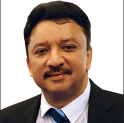Volunteerism in difficult times

*Corresponding author: S. M. Balaji, Department of Oral and Maxillofacial Surgery, Balaji Dental and Craniofacial Hospital, Chennai, Tamil Nadu, India. smbalaji@gmail.com
-
Received: ,
Accepted: ,
How to cite this article: Balaji SM. Volunteerism in difficult times. J Global Oral Health 2022;5:1-2.
At present, the whole world is facing a multitude of challenges – from ongoing pandemics in successive waves, each of which is fuelled by a COVID-19 variant, to the economic recession in countries such as Sri Lanka – creating poverty, hunger, and reduced healthcare-seeking behavior; civil unrest, armed conflicts, and climate-induced catastrophes as well as a lot of man-made and natural issues.[1,2]
It is the general public who bear the brunt of all the issues. The refugee crisis precipitating from these events poses a challenge to humanitarian workers. The world needs to create appropriate infrastructure to meet the need for critical resources of water, food, medicine, and sanitation. While the urgent requirements are being attended to on a war footing in most countries, the negligence shown to proper water supply, non-communicable diseases, and particularly oral health is worrying. The cumulative effect of oral hygiene neglect would be disastrous to large communities. Moreover, as health-care systems and facilities are being targeted in arm conflicts, the issue becomes manifold. With the global health system already creaking under the pandemic-induced burden, additional different health-care demands place further strains on the existing system and lack access to healthcare for those that need it the most. The success achieved in polio vaccination, tuberculosis screening, COVID-19 vaccination, maternal-newborn health, diabetes, hypertension, cancer screening, and preventable vision loss screening is some areas where the setback is evident.[3,4]
Wide differences in nature of the regional level health issue, each precipitated by different unique causes, the issues will branch out in coming year, to countries and economies around the world. Already the world is more connected in terms of health, economy, and fuel-food dependency. Growing wealth and trade imbalances have the potential to turn into detrimental factors for human health, but there are also new threats. New infectious diseases and stubborn chronic conditions will present challenges for many years to come, but doctors and scientists also work together globally. Working together, they dedicate their lives to improving global health.[5]
It is at this juncture, volunteerism and helping tendency need to be stepped up. The world has seen the worst humanitarian crisis but by sheer grit, compassion, and cooperative working, humankind was able to collaboratively create this epoch from the “Holocene” as the perfect “Anthropocene” from the psychosocial, biological, medical, and material standpoint.[6-9] The unwelcome aspects of human-induced modifications in the whole ecosystem needs to be corrected. It might not be still too late to usher in and adapt a series of changes that would make the world a better place to stay in. Most importantly, as part of the medical fraternity, we need to create awareness, motivate, and participate in such actions that would minimize human misery in all possible ways.
References
- Available from: https://www.euro.who.int/en/media-centre/sections/press-releases/2022/ukraine-28-days-of-war,-64-verified-attacks-on-health-care,-and-18-million-people-affected [Last accessed on 2022 May 03]
- Sri Lanka: Doctors scramble for basic medicines as economic crisis engulfs nation. BMJ. 2022;377:o968.
- [CrossRef] [Google Scholar]
- Health care and economic crisis: Can it get worse? Croat Med J. 2010;51:477-9.
- [CrossRef] [PubMed] [Google Scholar]
- Available from: https://www.hsph.harvard.edu/magazine/magazine_article/failing-economy-failing-health [Last accessed on 2022 May 03]
- Available from: https://www.aucmed.edu/about/blog/global-health-issues [Last accessed on 2022 May 03]
- Human health and social-ecological systems change: Rethinking health in the Anthropocene. Anthropocene Rev. 2017;4:216-38.
- [CrossRef] [Google Scholar]
- Health psychology at the age of anthropocene. Health Psychol Behav Med. 2019;7:193-201.
- [CrossRef] [PubMed] [Google Scholar]
- Safeguarding human health in the Anthropocene epoch: Report of the Rockefeller foundation-lancet commission on planetary health. Lancet. 2015;386:1973-2028.
- [CrossRef] [Google Scholar]
- Governance for health in the Anthropocene. Int J Health Gov. 2016;21:245-63.
- [CrossRef] [Google Scholar]





